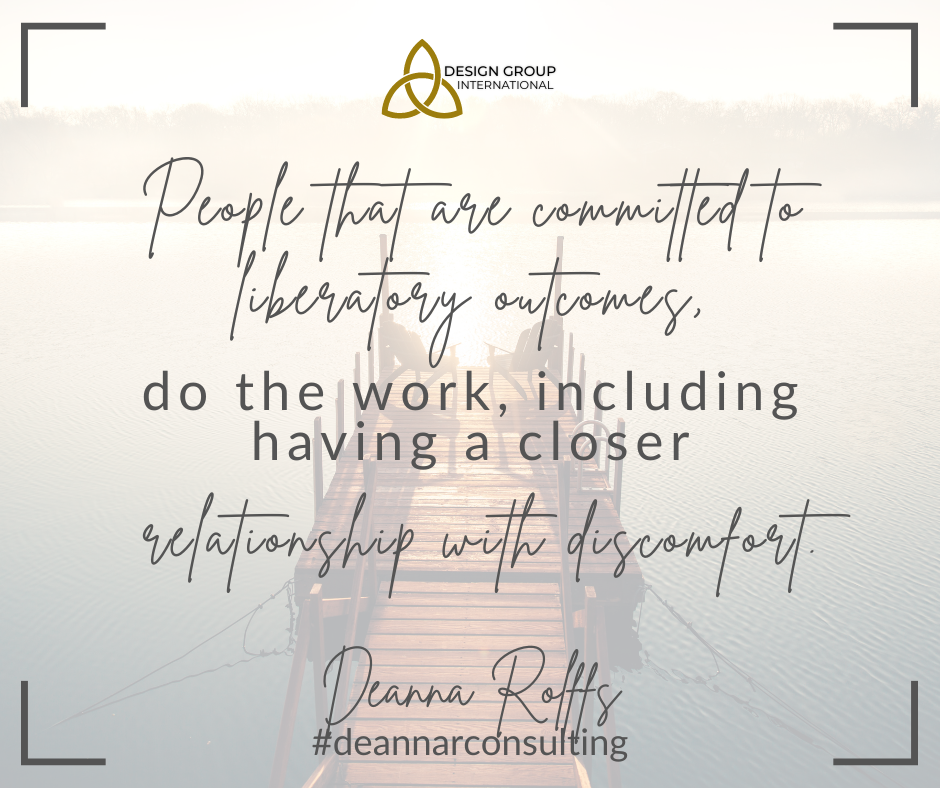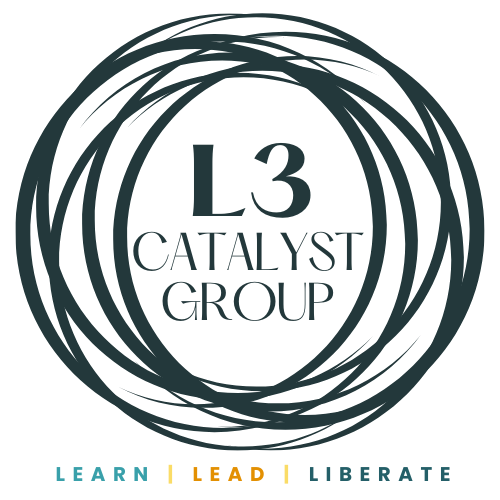Leadership + Right to Comfort
Illuminating White Supremacy Culture, Part 7
Seeking our comfort can cause harm.
A boss is told about their blind spot as they prioritize protecting organizational image above the reality of exclusionary client experiences. When confronted, the leader demands personal loyalty and support.
Those in an old-boys--power-network are confronted about protecting each other and excluding others. Yet, they continue to center and protect themselves by blaming the person confronting them.
Affluent board members question the CEO's decision to risk funding from a grant provider because the provider's values go against the inclusive value commitments of the organization. Board members claim a lack of logic to the decision that risks revenue.
White women claim commitment to racial justice while centering and protecting themselves and their kids, communities, men, or money.
Cisgender straight white male legislators and political leaders make villains out of queer and trans humans, keeping them from life-saving care.
Predominantly white, cisgender, straight, male legislators in entire states vote to defund and disallow public universities from teaching about equity, inclusion, and belonging, including defunding Black history, African American studies, etc.
It causes harm.
How do we bridge these gaps that are causing harm and keep moving toward the equitable missions of these organizations?
This is Part 7 of a series unpacking White Supremacy Culture's Characteristics. Catch up on the most recent topics, including Leadership + the Binary, Leadership + Paternalism, and Leadership + Perfection.
up on the most recent topics, including Leadership + the Binary, Leadership + Paternalism, and Leadership + Perfection.
This post unpacks the characteristics of the Right to Comfort and provides antidotes from the author Tema Okun.
I get a front-row seat daily, seeing leaders work to change their organizations, build thriving teams, and take concrete moves toward liberation and anti-oppression.
It's never comfortable.
It's the most liberating work imaginable when they don't protect their own comfort.
Leaders who work across and within differences seek community, dig deep for their bravery, ask potentially embarrassing questions, and are open to receiving feedback that they may typically be protected from due to their position or identities. Learning about their power increases consciousness of the invisible knapsack of tools and resources that privilege brings.
People committed to liberatory outcomes do the work, which includes having a close relationship with discomfort.

Expecting or even demanding one's comfort can be harmful, toxic, and counterproductive when it comes at the expense of others. We can notice, learn, and unlearn. I'm more convinced of this every day.
Right to comfort shows up as:
- The belief that those with power have a right to emotional and
 psychological comfort (another aspect of valuing 'logic' over emotion)
psychological comfort (another aspect of valuing 'logic' over emotion) - Scapegoating those who cause discomfort. For example, targeting and isolating those who name racism rather than addressing the actual racism that is being named
- Questioning the validity of the person or topic that causes discomfort
- Demanding, requiring, expecting apologies or other forms of "I didn't mean it" when faced with accusations of colluding with racism
- Feeling entitled to name what is and isn't racism
- White people (or those with dominant identities) equating individual acts of unfairness with systemic racism (or other forms of oppression).
What can we do about it?
Watch out for blaming and scapegoating anyone who raises concerns, names inequities, and calls for change and justice.
When you feel the need to self-protect or make excuses for behavior, pause and listen.
Work to understand the difference between individual acts of fairness and systemic oppression.
Here are two scenes that illustrate the Right to Comfort that I hope will be illustrative.
Scene one:
You are at a board retreat for a dynamic nonprofit you love, with diverse leaders from various sectors, gender, and racial identities, and perspectives. The facilitator frames brave spaces so the board can clearly envision a more equitable future.
The only Black man in the room shares how meticulously his spaces require him to watch his language and dampen his feelings, leading with calm, control, and logic. If he doesn't do this, he will be discounted, ignored, and shut out.
A white man responds that he experiences the same thing.
A Black woman shares that it's not the same for the two of them.
Four white men in the group come to the defense of the first white male that, minimized the racial component shared by the Black man.
Scene two:
You are serving on a board for an arts nonprofit that has received a grant to remodel bathrooms within the nonprofit's building to all-gender restrooms. Renovation is scheduled to start soon.
Fellow board members ask a lot of questions, wondering if their "wives will be safe" and "How does this work?" and "What if people don't want to visit our building anymore after this?"
The staff of the nonprofit, who hold genderqueer, trans, and queer identities (and their allies), tries to answer the questions at first.
It's almost as if they are speaking different languages.
The board member's questions are harmful.
The power dynamics at play in these scenes occur every day. They are challenging. There are many things we can do to understand our discomfort better and increase our ability to connect and heal.
Okun shares some antidotes or suggestions for how to show up in ways that connect and heal more than the Right to Comfort allows:
- Understand that discomfort is at the root of all growth and learning.

- Welcome discomfort and learn to sit with discomfort before responding or acting.
- Deepen your political analysis of racism and oppression so you understand how your personal experience and feelings fit into a larger picture.
- Avoid taking everything personally.
- Welcome honest and hard feedback as the gift it is, knowing that people could so easily choose to stay silent and talk about you behind your back rather than gift you with their truth about how your attitudes and/or behavior are causing a problem.
- When you have a different point of view, seek to understand what you're being told and assume there is a good reason for what is being said; seek to find and understand that good reason (without labeling the other person).
- Remember that feedback and criticism may be given skillfully or unskillfully; either way, it will not kill you.
- Remember that critical feedback can help you see your conditioning as you learn to separate your conditioning from who you actually are; you need to know your conditioning if you are going to be free; while your conditioning is hazardous, you are not.
Which antidote are you willing to practice? Notice the result. Try it again and again. I'd love to hear about how it goes for you!
Fellow leaders and learners, I wish you courage and resilience for the journey.


Related Leadership & Learning Letter Topics:
Tags:
White Supremacy Culture, Mistakes, Perfection, Paternalism, leadership, growth, perfectionism, Comfort
June 14, 2023




Comments